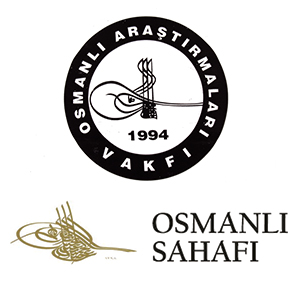Prof. Dr. Ahmed Akgündüz
What does Age of Fatrah (Interregnum) mean?
It is the fruitless and miserable period for eleven years, which began with the Ottoman State’s dismemberment with Ankara defeat in 1402, continued with the Lightning’s children’s fight for the Sultanate and ended in 1413 with Chelebi Mehmed I’s being undisputedly accepted as the sole Sultan.
The Lightning’s children who were in life at the time of his death are as follows by order of their ages: Sulaiman Shah (1375-1410), Isa Chelebi (1378-1405), Mustafa Chelebi (known as Duzmajah Mustafa, 1380-1422), Mehmed Chelebi I (1382-1421), Musa Chelebi (1388-1413) and Prince Qassem (1397-1417). How did their struggle for the Sultanate proceed? Did Emir Sulaiman and Musa Chelebi reign? [1]
Who is Sulaiman Chelebi (Emir Sulaiman = Sulaiman I)?
Having escaped and saved his life with Ali Pasha of Chandar after the defeat of 1402, Prince Sulaiman came to Bursa and no sooner had he collected his essential belongings than he fled to Edirne, where he promulgated his sultanate. He even defeated Hungarians who had waged war against Ottomans craving to benefit from the situation. Nevertheless, the largest soils of the Ottomans were in the possession of Mehmed Chelebi who resided in Amasya. On the other hand, Isa Chelebi had once besieged and invaded Bursa, but he was forced back by Mehmed Chelebi. That Sultan Sulaiman proclaimed Edirne as the capital nullified that quality of Bursa and the age of Edirne started, which would last 51 years. Musa Chelebi was hesitating and even recognized his brother’s sultanate. Sultan Sulaiman passed to Anatolia and also with the help of friendships he had established with the Byzantine Empire, he took Bursa, Izmir and Ankara. In the meantime, when the Anatolian principalities began to support Mehmed Chelebi against Sulaiman, Musa Chelebi also obeyed him and passed to Rumelia to pursue Sulaiman. Though Musa Chelbi, with the support of some commanders and the Prince of Romania, ready for plots, had passed to Rumelia on behalf of Mehmed Chelebi, he actually had been intending to proclaim his own sultanate and having cornered Sultan Sulaiman in Edirne, he killed him (1410). Thus Sultan Sulaiman’s sultanate for 8 years had ended at the age of 35. It is stated in some sources that, unfortunately, also with the influence of the Grand Vizier Ali Pasha who was not so devoted a Muslim, his spiritual side was not so perfect in comparison to most other Ottoman Sultans.
The most notable statesman of the age of Sultan Sulamian is Ali Pasha of Jandar, who is not liked by historians and said to have caused the defeat of the Sultan; among the scholars Izzuddin Abdullatif, famed as Ibn al-Melek, his son Muhammad, Mufti Najmuddin Khanafi; among the spiritual visionaries Yunus Emre; among the poets Ahmedi, author of Iskendername, and Mawlana Hamza, who is not said to be a morally upright poet by historians. It could be understood from the life of Sultan Sulaiman that it is the colleagues of one who makes him either victorious or defeated. [2]
Who was Sultan Musa Chelebi?
Musa Chelebi, who promulgated his Sultanate in 1410 in Edirne, was a martinet soldier but not a good diplomat. Besieging Istanbul for the fifth time, he opposed Byzantium. He defeated Mehmed Chelebi, who attacked him. Thereupon, Mehmed Chelebi, who was a good diplomat, took shelter with the Byzantine Empire. When Musa Chelebi cooled the Rumelian principalities from himself, Mehmed Chelebi took advantage of that and, for the second time, with the support of both the Rumelian begs and the Serbian Prince, confronted his brother Musa at Chamurlu Derbend and thrashed and killed him. Thus the sultanate of Musa which lasted for about three years terminated at his age of 25. And the Ottoman throne was inherited soley by Mehmed Chelebi (1413). So did the Age of Interregnum terminate.
Among those statesmen supporting Sultan Musa during his reign are his Grand Vizier Melikshah the Blind, Muhammad Beg son of Mihal and his brother Bakhshi Beg; among the scholars his Kazasker Shaikh Badruddin of Simav. While Sultan Sulaiman had three children called Prince Orkhan, Prince Mehmed Shah and Pasha Melek Hatun, Sultan Musa had no offspring . [3]
1- Ali, Qunh al-Akhbar, v. V, pgs. 117-144; Solakzada, pgs. 91-124; Aksun, The Ottoman History, v. I, pgs. 91-98; Uzunçarşılı, The Ottoman History, v. I, pgs. 325-345; Öztuna, The States and Dynasties, v. II, pgs. 113-116; Kantemir, v. I, pgs. 109-120.
2- Âli, Künh’ül-Ahbâr, c. V, sh. 117-144; Ahmed Uğur neşri, sh. 198; Solakzâde, sh. 91-124; Lütfi Paşa, Tevârîh-i Âl-i Osman, sh. 61-68; Aksun, Osmanlı Tarihi, c. I, sh. 91-98; Uzunçarşılı, Osmanlı Tarihi, c. I, sh. 325-345; Öztuna, Devletler ve Hânedânlar, c. II, sh. 113-116; Kantemir, c. I, sh.109-114.
3- Âli, Künh’ül-Ahbâr, c. V, sh. 117-144; Ahmed Uğur neşri, sh. 204-241; Solakzâde, sh. 91-124; Lütfi Paşa, Tevârîh-i Âl-i Osman, sh. 61-68; Aksun, Osmanlı Tarihi, c. I, sh. 91-98; Uzunçarşılı, Osmanlı Tarihi, c. I, sh. 325-345; Öztuna, Devletler ve Hânedânlar, c. II, sh. 113-116; Kantemir, c. I, sh.115-120.



